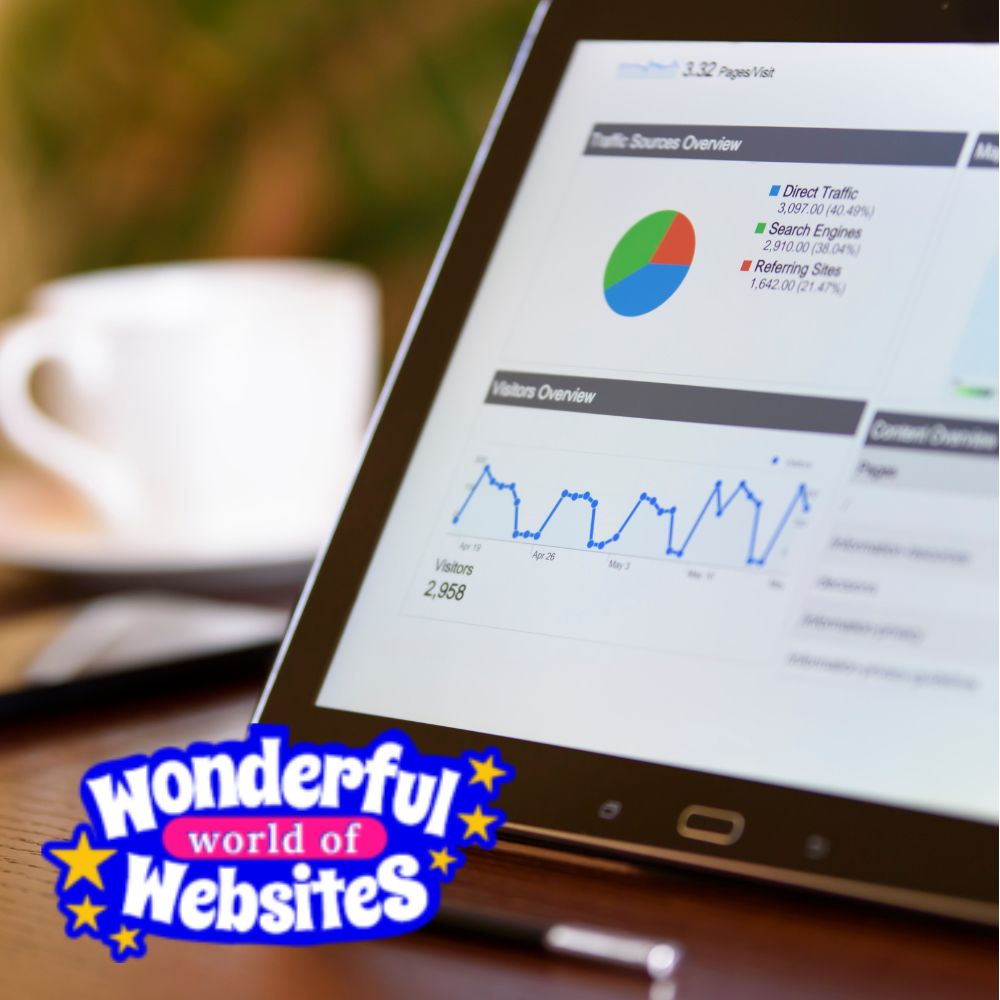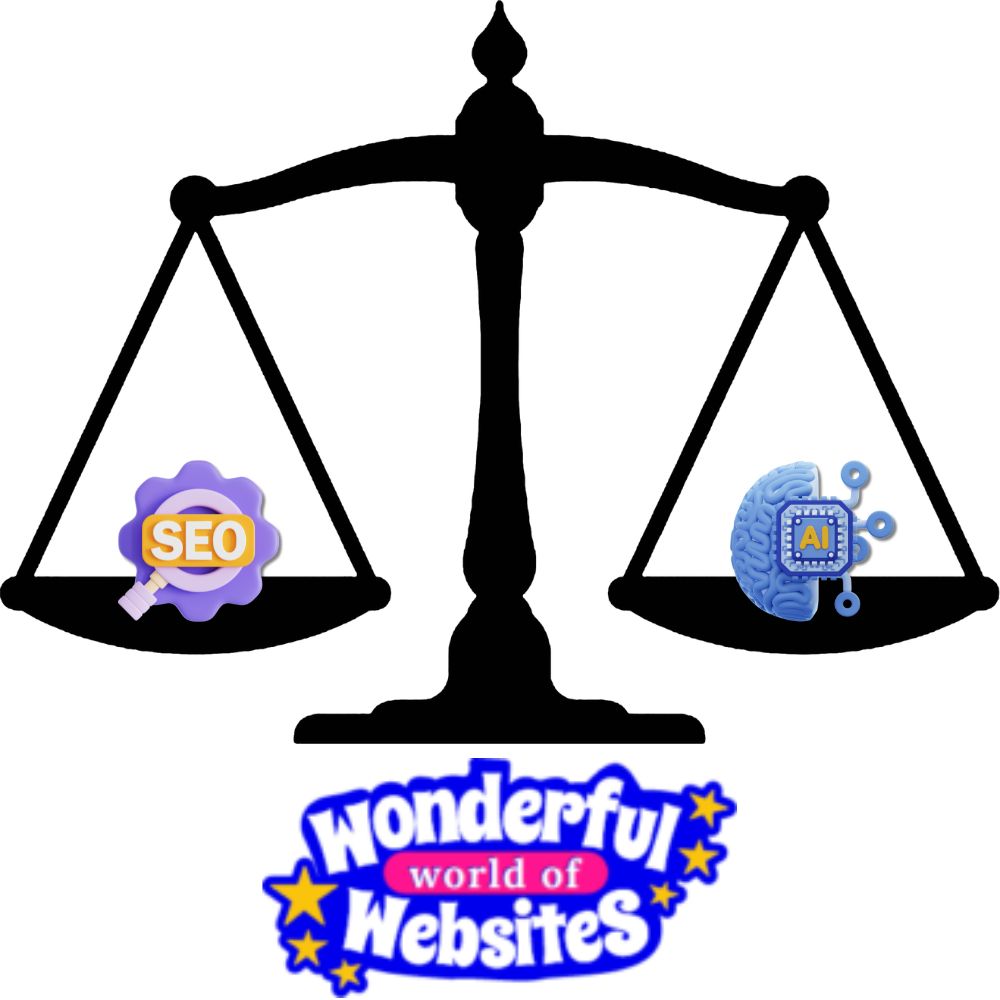As an SEO expert and website content creator, I’ve seen digital trends come and go. However, there is one that I’m convinced is here to stay: AI referral traffic. It’s popping up more often in analytics dashboards, and if you’re not tapping into it, you’re missing a valuable stream of potential customers.
So, what exactly is AI referral traffic, and how can you tap into it to grow your website? In this post, I’ll explain what it is, why it’s important, and how to use it effectively for your business or blog.

What is AI Referral Traffic?
AI referral traffic is the traffic your website receives from AI tools like ChatGPT, Google Gemini, Microsoft Copilot, and similar platforms. These tools answer user questions and often include links to relevant websites in their responses. You might have come across this if you have used any of these tools to help you create content.
When someone clicks a link from one of those tools and lands on your site, that visit shows up in your analytics as AI referral traffic, typically from domains like chatgpt.com or gemini.google.com
Let me give you an example:
A user asks ChatGPT, “What are the best ways to increase your website SEO?”
If ChatGPT recommends your blog post or portfolio in its response, with a link to your website, and the user clicks through, you’ve just earned AI referral traffic. It’s as simple as that.
Why AI Referral Traffic Matters
There can be no argument that AI is rapidly growing in popularity, and more and more people are using it and trusting it. AI tools are becoming the first stop for people searching online. Instead of typing questions into Google, users are now asking AIs directly, like Alexa or Siri. Consequently, that’s changing how websites get discovered.
Here’s why AI referral traffic is so important to your business:
- High-Intent Visitors: These users are actively looking for solutions. If AI refers them to you, they’re already halfway towards completing a purchase with you or getting in touch with you for your services.
- Trust Factor: Links from AI carry built-in credibility, and users assume it’s a trusted source.
- SEO Boost: AI often pulls data from high-authority pages. If you’re cited as a reliable source, it could boost your organic rankings too.
- Competitive Edge: Many businesses aren’t optimizing for this traffic source, yet. That gives you a head start.
So, if you want to get ahead of the competition, make AI optimization part of your web strategy today!
How to Get AI Referral Traffic to Your Website
Ready to start showing up in AI responses? Here’s how you can position your site to earn more AI referral traffic:
1. Create Content That Directly Answers Questions
AI platforms, just like search engines, prioritise clear, structured content that provides direct answers. Think:
- “How to” guide
- Comparison articles
- FAQ pages
- Lists and step-by-step posts
Therefore, use conversational headings like “What is [Topic]?” or “Best tools for [Task]” as these mimic how people ask AI questions.

2. Use Natural Language and Long-Tail Keywords
AI prefers conversational phrasing, so your content should match that. Instead of just targeting keywords like “web design,” for example, use phrases like:
- “What’s the best platform to use for web design?”
- “How do I choose the right website template?”
These kinds of long-tail keywords increase your chances of being featured in AI-generated answers.
3. Implement Schema Markup and Structured Data
Schema markup helps both search engines and AI understand your content contextually. Schema markup is also known as structured data. It refers to the vocabulary of tags or microdata embedded in your website’s HTML. Use it to highlight:
- Articles
- FAQs
- Products
- Reviews
This increases your visibility in both traditional search engine results and AI answers.
4. Get Featured on High-Authority Platforms
AI models learn from trusted sources. That means getting backlinks from top-ranking blogs, directories, forums, or media outlets improves your chances of being cited.
Consider some of the following to achieve this:
- Guest posting: Just like I am doing here. You create a ‘guest’ post for a popular website with a backlink to your business (find mine at the end of this post).
- Engaging in expert roundups: This is a blog post where the author asks multiple experts to share their insights, tips, or predictions on a particular topic. When you contribute, a backlink to your site is added. Check out ‘Help a Reporter Out‘ (HARO) or Qwoted for potential leads.
- Publishing on LinkedIn: Frequently crawled by AI models and search engines, LinkedIn is an excellent source for promoting your website. Amplify your voice and drive targeted traffic back to your site.
5. Track and Monitor AI Mentions

Use Google Analytics, Google Search Console, and third-party tools to identify when AI platforms refer traffic to your site. It will help you determine what is and isn’t working for you.
Look out for referral domains like:
chat.openai.com(ChatGPT)bard.google.com(Gemini)copilot.microsoft.com(Bing Copilot)
Once you identify what is working for you, you can confidently move forward using that method/source more frequently.
Is SEO Still Important — or Is Optimizing for AI the Future?
You might be wondering:
“If AI is changing how people discover content, does traditional SEO still matter?”
It’s a great question, and the short answer is: Yes, SEO is still important. But it’s evolving. Fast. In fact, I get notifications of changes almost every month these days!
Thankfully, especially for me as an SEO expert, SEO and AI are slowly merging, not competing.
Adobe For Business revealed in research they conducted from July 2024 to February 2025, that AI referral traffic had increased more than tenfold in the US. They go on to report that ‘36% of generative AI users report replacing traditional search with AI assistants’. However, it is important to note that AI tools like ChatGPT, Google Gemini, and Microsoft Copilot don’t replace search engines they use them.
In fact, many AI platforms rely on top-ranking search results to formulate their answers. That means if your site is already well-optimized for SEO, it’s more likely to show up in AI-generated responses too.
So, rather than thinking of SEO and AI as separate channels, think of them as two parts of the same discovery engine.
So… Which Should You Focus On?
Both. By tapping into both of them, you are merely widening your net as you cast out and fish for potential clients/customers. However, you may need to consider a shift in emphasis.
What I mean by that is: Use SEO to get indexed and use AI optimization to get referenced.
That means:

That means:
- Keep using proper headers, keywords, and schema
- But also focus on natural, question-based content that AI can easily pull from
- Write clearly, structure your content well, and build trust through expertise
So, ask yourself this question: “If someone asked an AI assistant a question related to my topic, would my content be the best answer?”
If your answer is no, it’s time to refine your content for both search engines and AI tools.
Final Thoughts: AI Referral Traffic Is the Future
AI referral traffic isn’t just a trend it’s a whole new way users discover and engage with websites. Whether you’re a solo creator or running a business, optimizing for this traffic can give you a serious edge.
Both Lisa, here at Wonderful World of Websites, and I would like to encourage every client to think beyond traditional SEO. I know, we’ve been banging on about it for ages, but creating content that AIs love doesn’t just help with traffic, it builds trust and authority in an increasingly conversational web. It’s time to optimise for both!
Ready to optimise your site for AI referral traffic?
Lisa and I love working together to help our clients develop and maintain fantastic websites with optimal performance. So, if you need a full website redesign, please contact the Website Wonder Woman herself, Lisa, here. Or if you need a content strategy that works for both SEO and AI, I can help.
Contact me today for a free consultation, and let’s make your website SEO savvy and AI-smart together.


